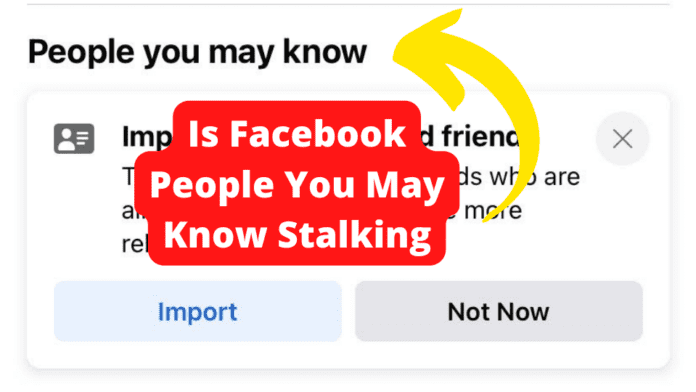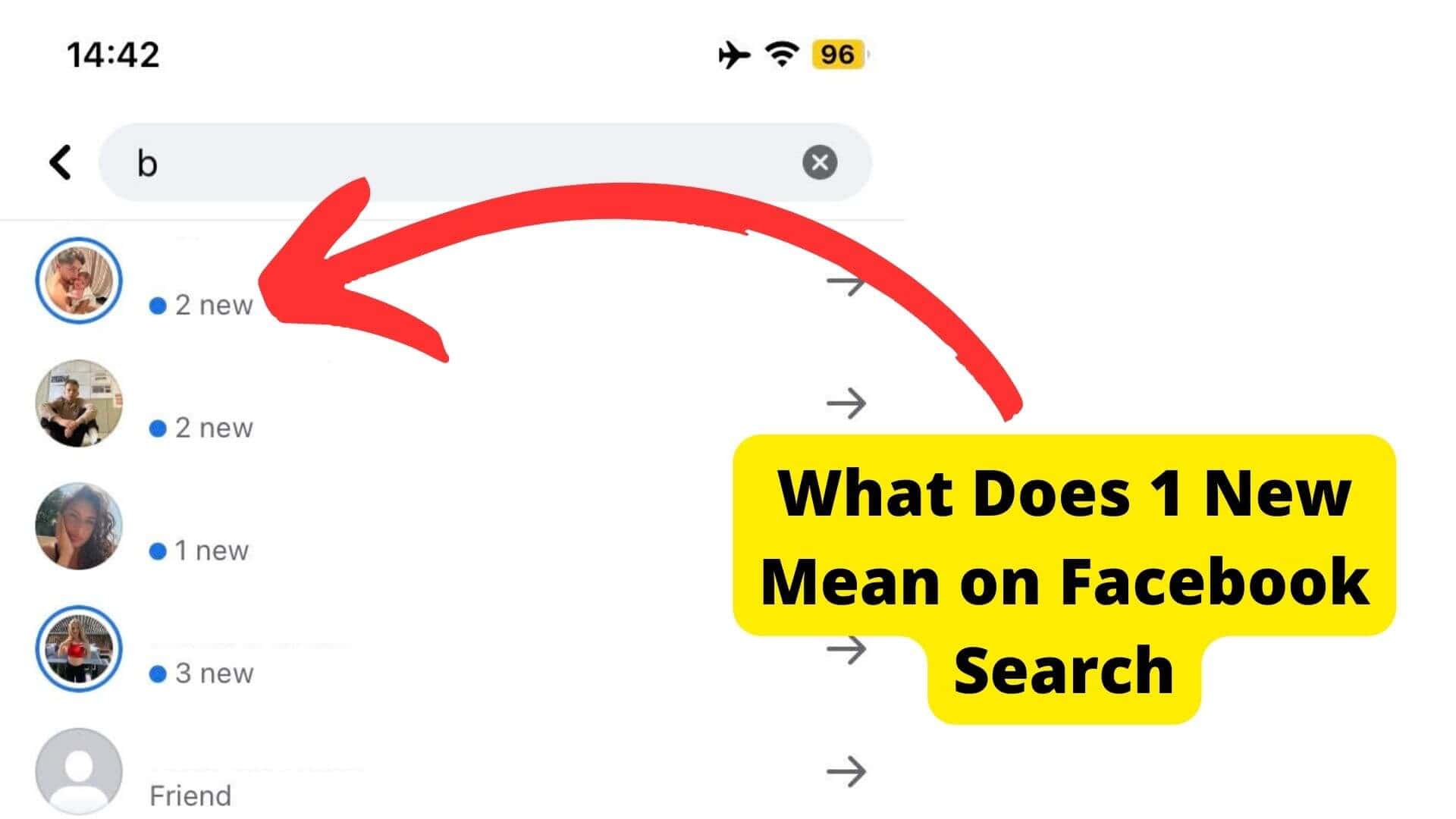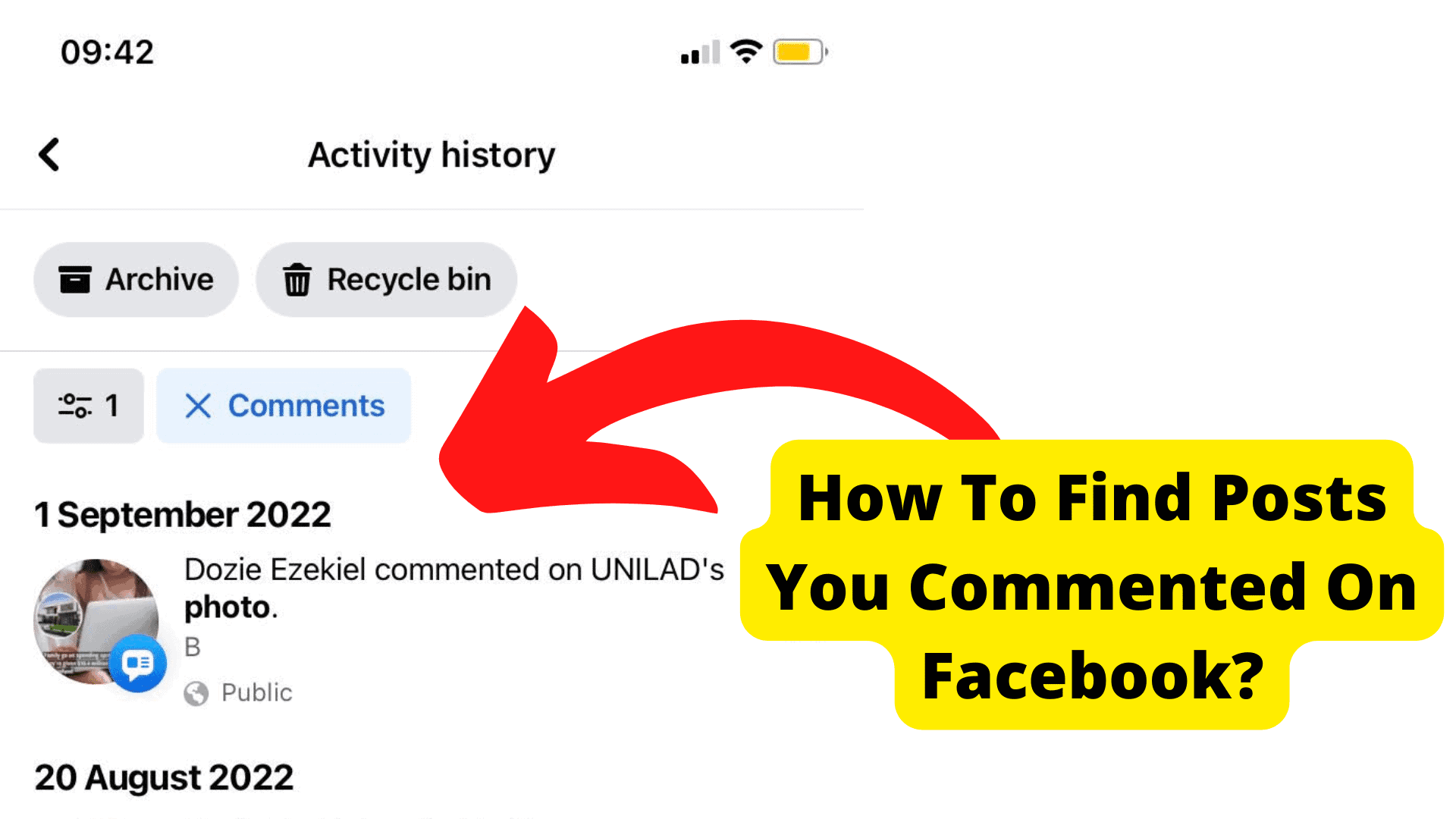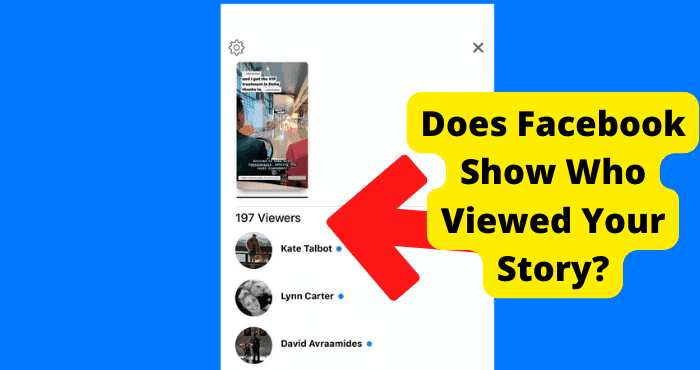Key Takeaways
- Facebook’s “People You May Know” suggests connections based on mutual friends, shared networks, and uploaded contacts, not just profile visits.
- Some users suspect stalkers appear in “People You May Know,” but Facebook denies this is a primary factor in recommendations.
- You can remove unwanted suggestions to refine future recommendations on the list.
- Frequent interactions or likes from unfamiliar users may indicate profile stalking.
- Contact Facebook Support for unresolved privacy concerns related to the feature.
One particular algorithm that’s not so understood is “People You May Know” on Facebook; do you actually know these people, are they stalkers, and how exactly does Facebook recommend these users?
Facebook is one such popular platform that promotes sharing and interconnecting with loved ones, and its users benefit from a shared sense of togetherness.
However, as with everything else in life, there are risks associated with sharing information about yourself and your activities on Facebook.
For instance, other people may monitor your page, which isn’t always good. A person stalking you may just like your posts, or there could be a more sinister motive.
Some users wonder about such stalking activities and ways you can tell if someone is stalking you on Facebook.
If these are questions running through your mind as a Facebook user, we’ve provided some much-needed answers in this article.
So, keep reading to find out how Facebook’s ”People You May Know” works and if it relates in any way to getting stalked on Facebook.
What is Facebook “People You May Know” Stalking?
For those who are unaware, the “People You May Know” feature on Facebook is exactly what it sounds like.
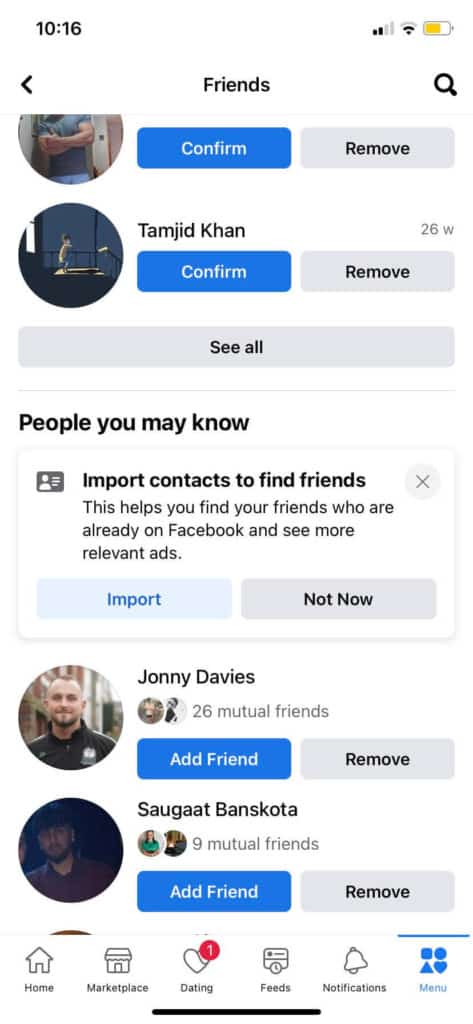
A feature that displays the Facebook profiles of other people with whom the social media network believes you may be connected.
Facebook is designed to prompt you with reminders of other Facebook users you can also add to your network.
You’ll typically see this tool everywhere you see your friends on the platform, and the feature is available to access in two places: a widget buried in the heart of your news feed and a subsection of your Friends tab.
By choosing the Add Friend option beside the suggestion, you can easily send a friend request to any Facebook user on your ”People you may know” list.
If, on the other hand, you decide that Facebook’s recommendation is useless or unappealing to you, you can delete it, and fewer suggestions similar to it will appear on the “People You May Know” list.
Now, some Facebook users are of the opinion that the recommendations on Facebook’s “People You May Know” list are made because such people are stalking your profile.
And that profile view may be one of Facebook’s algorithms when suggesting connections on the “People You May Know” list.
However, the truth in this assumption is not entirely certain because no one knows for sure that this is the case.
Some users, however, seem quite sure that the Facebook users on their “People You May Know” list have stalked their profiles at one point or the other, which is why Facebook recommends them on the list.
Some of these people even went as far as to cite several examples of such occurrences, so it makes us wonder, is it a coincidence, or is there some element of truth in it?
Well, we can’t say for sure. However, in the next section, we’ve discussed Facebook’s actual algorithm (as stated by Facebook itself) for suggesting potential connections via the “People You May Know” feature.
How Does Facebook Choose “People You May Know”?
One common question that Facebook users ask is how the platform comes up with the suggestions for potential connections that they include on the “People You May Know” list.
Is there a particular algorithm? Are the suggestions random?
Well, according to Facebook, suggestions for the “People You May Know” list come from things like:
Having mutual friends
your networks, such as the places you currently live, go to school or work.
Sharing a Facebook group, in which case other members of the group might get suggested as potential friends, especially if they’ve also visited your profile at some point
being tagged in a similar post or photo.
The contacts you uploaded to Facebook
Some people also reported contacting Facebook to inquire about whether the explanation on Facebook’s help page about how “People You May Know” suggestions are made is still valid.
The queries also included whether the tool utilizes any additional data to create suggestions outside of what is mentioned on the help page.
In response to this query, Facebook confirmed that the information contained on its help center’s page is accurate and adequately describes the most frequent forms of information that underpin suggestions on the “People You May Know” list.
The phrase “most frequent forms” appears to be doing a lot of work in this context by indicating the presence of additional, less common forms of data.
The follow-up letters asking Facebook for clarification regarding additional potential data sources, including Instagram and phone contacts, apparently went unanswered, as per the claims.
These seemed to indicate that the “People You May Know” suggestions on Facebook appear to be based on more than just “suggesting people in your network.”
However, there might be no way to know for sure, so there’s nothing to do in this case but take Facebook’s word for it.
Is “People You May Know” Accurate?
The “People You May Know” feature on Facebook can be considered to be fairly accurate. You’ll typically see many people you know personally on this list.
Suggestions for people you may know usually come from things like having friends in common or being a part of the same network.
The “People you may know” feature on Facebook is also frequently updated by the platform to enhance the accuracy of suggestions.
However, occasionally Facebook could make a mistake and display a friend request for someone you don’t know or have no interest in adding to your network.
You also may not see people you know from time to time, especially if they have mutual friends with whom you aren’t actually friends.
Keep in mind that you can eliminate suggestions that you feel are not useful. Facebook may thus enhance “People you may know” by removing unhelpful suggestions so that you see fewer suggestions similar to them.
Are “People You May Know” Stalkers?
People who have mutual friends with you and, in some situations, who are in the same city as you, are typically found under the “People You May Know” list.
If they already have your contact information associated with your Facebook saved on their phone, it is also conceivable that they located you through that means.
If, however, you see someone on the “People You May Know” list who is not a mutual friend and whom you have never met in person, there is a possibility that this person has viewed or stalked your profile.
You don’t really have anything to worry about from the people on the “People You May Know” list since they’re mostly suggested to you based on similar information on your account as well as theirs.
But like we said, if you find no such links or mutuals, then you might be dealing with a stalker.
There are some ways to tell if you’re being stalked on Facebook if that’s something you’re worried about.
Click on the three lines to reveal the app’s options while using the mobile phone app. You will see the option Friends, among others. After clicking it, choose All Friends.
You should now see Facebook users with whom you frequently interact. If you see any user at the top of this list with whom you do not frequently interact (that is, like, tag, share, or comment on their content), then it is likely that this individual has spent some time viewing your page.
People who are constantly liking your status updates are another indicator to look out for when trying to figure out who is stalking you.
These folks are quite likely the ones who frequently view and engage with your posts in the Feed, and they may be doing that by viewing your profile every time.
If I Stalk Someone’s Profile Will I Be Shown on “People You May Know”?
Many investigators/stalkers are stumped by this possibility, and Facebook’s stated position is that it does not report to any Facebook user who is “visiting” their Facebook page.
Additionally, Facebook makes sure that no independent apps can help users verify who is visiting their page or stalking them.
It goes without saying that other circumstances — as we’ve described above — can cause someone to appear on the “People You May Know” list.
Thus, it is uncommon for stalking to be among the possible reasons. However, we’re not going to rule it out totally based on some experiences that testify to the possibility, as reported by some users.
Only in cases where you view profiles of people with whom you have no relationship at all will this matter.
If you don’t share any common hobbies, never worked for the same firm, attended the same event together, or didn’t reside in the same town, etc.
As the person you stalk, if you show up on the person’s “People You May Know” list, it may be a bit suspicious. The same goes for if you also don’t have any friends (or friends of friends?) in common.
How to See “People You May Know” on Facebook
The “People you may know” feature on Facebook can typically be used to find individuals who are friends of your friends or potential mutual interests.
You can follow these steps to see the “People You May Know” feature on Facebook:
Click Friends in the left menu of your Facebook Feed. You might first need first to click “See more.”
Check out “People you may know” by scrolling down or selecting Suggestions from the left menu.
You might also see suggestions for People You May Know in your notifications and Feed.
With the instructions above, you can access Facebook’s “People You May Know” tool, scroll through the list and connect with any of the suggestions you feel comfortable linking with.
On the other hand, you could also remove the suggestion from the list if you want.
If You Look at Someone’s Profile, Will They Show up as “People You May Know?
Just as we described above, going through the profile of someone on Facebook might cause the platform to recommend you to them as a potential connection on the “People You May know” list.
At the same time, these people could also get recommended as a potential connection to you, which makes sense because Facebook might wonder if you’re interested in such a person.
This is a safe assumption that anyone can make, considering that you were the one checking out their profile in the first place.
When such a person is recommended by Facebook on the “People You May Know” list, you can either connect with the person or remove the friend suggestion from the list. It all depends on you.
Am I Shown in “People You May Know”?
As long as you’re a Facebook user, Facebook is most likely recommending you as a potential connection to other users somewhere via the “People You May Know” tool.
It’s just the same way you get suggestions about other people. Facebook would most likely be recommending you to others as well.
Should I Add People From “People You May Know”?
Of course, you should consider adding people to your Friends list from the “People You May Know” list on Facebook.
This is the primary reason why Facebook suggests them, so you can add them to your network of Friends and grow your community of friends.
This is definitely a better option than adding complete strangers you know nothing about.
Moreso, with people, that Facebook suggests on the “People You May Know”, you might even find that you have some things in common because Facebook’s algorithm has found mutual interests and connections that you share with them.
Ask Facebook Support
Like other social networking tools, Facebook prides itself on providing solutions that improve user experience.
As such, if something interferes with this impeccable user experience that Facebook strives to provide.
For example, if you worry that you’re being stalked on the platform—or if you simply have more questions about Facebook’s “People You May Know” list, you could always reach out to Facebook for clarification.
You can get in touch with Facebook in several different ways. For one, you could visit Facebook’s help center.
The Facebook Help Center is a comprehensive and frequently updated source for information on operating the network, managing Facebook accounts, using Facebook generally, privacy, and security.
If you have any questions, use the help panel, which contains basic and technical instructions on how to utilize the platform.
Even if you are not connected to Facebook, you may still access it for free, around the clock.
On the help center website, you’ll see different categories of information from which you can select the one that most applies to you.
You could also report a problem to Facebook if the “People You May Know” feature is causing some kind of problem for your privacy or safety.
Facebook users are able to employ this technique to report content that is offensive, harmful, or in violation of Facebook’s standards, as well as broken pages, payment issues, and content.
So this could work fine to fix any issues you’re having with the “People You May Know” feature, especially if you think you’re being stalked.
When reporting an issue, make sure to be as specific as possible because Facebook does not have access to all of your data.
Ideally, you ought to add screenshots as well. A Facebook administrator who has reviewed the report will respond to you after some time.
You can check your account to see the progress of your ticket. If any request you put out is denied, you’ll also have the right to appeal the ruling.
Conclusion
With social networking platforms like Facebook, there are endless opportunities to connect with people around the world.
That’s just one out of the many good things about them, and the ease with which anyone can browse through profiles to connect and make new friends is mostly wonderful.
One of the most contentious Facebook features is the “People You May Know” feature. Some people view it as an invasion of privacy, while others see it as a fantastic tool to expand their networks.
Naturally, privacy and security concerns arise every now and then with social media, and it’s always a good idea to find out if your information — and, by extension, you — is safe.
This is why it’s understandable if you’re worried that other Facebook users suggested on the “People You May Know” list may be stalking you.
We’ve provided answers to all the confusing questions you might have, so ensure to read through this guide so you can know what to do to put your mind at ease.
You should also reach out to Facebook for any answers you could not find here in this guide.
So, let nothing interfere with your enjoyable user experience on Facebook, happy networking!


